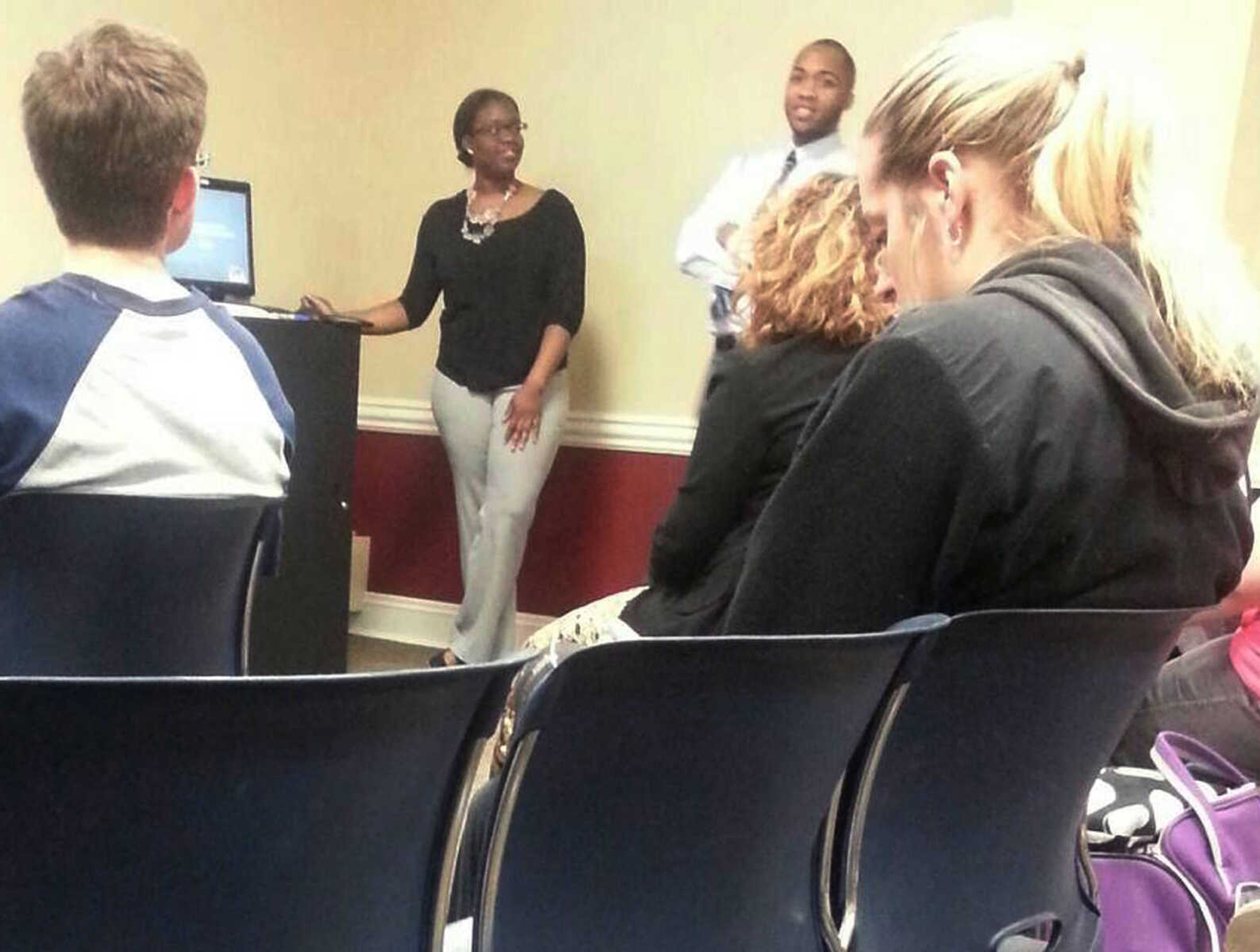Recap of the Job vs. Career seminar
The seminar "Job vs. Career: Where us your path leading?" which took place on Wed. 2 at the University Center highlighted the importance in understanding the difference between a job and a career and expanded on how to approach a career with focus and drive.
The seminar "Job vs. Career: Where us your path leading?" which took place on Wed. 2 at the University Center highlighted the importance in understanding the difference between a job and a career and expanded on how to approach a career with focus and drive.
Students' number one response to why they came to college was to get a good job. According to Rashaun Henry, the Academic Specialist of Student Support Services at Southeast, a job can be anywhere and the skills for a job can be taught to anyone, but the skills for a career have to be learned and students have to know that every career is not for everybody.
"It's specifically blended to your DNA, because whatever career you choose has to be representative of who you are and what you are made to do," said Henry, who is in charge of the Southeast seminars, said.
The seminar on this particular topic was organized for students to understand the difference and how they should approach a career with a different focus and drive compared to how they approach a job.
When students in the seminar were asked what they took from working a job and then now entering a career, many of them said they learned how to communicate better and perfect their skills in areas that prepared them for pursuing their career and going to college.
"There are positive outlooks to a job because every job is a part of your career, graduate assistant Kei-Shae McCrary said. "It provides you with the skills and resources that are necessary for the future."
Some students do not realize how jobs open opportunities for them, for instance interning even though the majority of internships are free. Students have the chance to be hands-on in an atmosphere of a job you are pursuing to see if you are comfortable in the environment.
"Any job you have is an opportunity for networking," graduate assistant Brenton Miller said. "He stressed how important networking is and how it is a positive way to get your name and skills to people to reach opportunities."
In closing the seminar both graduate assistants left students with food for thought, "Think about what you're doing today that can affect your career tomorrow," McCrary said.
Henry said that many students are often living their parents' dreams. He went on to explain that what he meant by this was that they are doing what their mom and dads want them to do, such as being doctors and lawyers, instead of doing what they are passionate about.
Henry added that he always tells students not to be moved solely by money because money will not sustain a person in a career that one is not passionate about. When students choose careers that they are not passionate about, they often drop their careers and pick up jobs, because they often end up not being happy in their careers.
He said that when talking to students he tries to help them understand the importance of integrating their hobbies, skills, desires and passions into their career selection; and also stressed the importance of finding meaningful internships early in their college career, to make sure that they are comfortable in that career before getting a degree in that career.
At the end of every semester all of the students, faculty and staff who attended one of the seminars was surveyed to see what they would like to discuss in future seminars. Henry said he will use those suggestions while preparing each semester's seminars, along with suggestions and guidance from colleagues and supervisors as well as his own research of current trends and topics. So depending on the students' response to the seminar, he can envision having similar seminars like this in the future.






